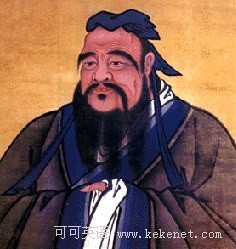(单词翻译:单击)
孔子提倡“为政以德”,并提出了很多治世之道。今天我们就来看看孔子讲述的从政为官的基本原则都是怎么翻译的吧。
君君,臣臣,父父,子子。There is government, when the prince is prince, and the minister is minister; when the father is father, and the son is son.
子为政,焉用杀;子欲善,而民善矣。君子之德风,小人之德草,草上之风必偃。In carrying on your government, why should you use killing at all? Let your evinced desires be for what is good, and the people will be good. The relation between superiors and inferiors, is like that between the wind and the grass. The grass must bend, when the wind blows across it.
举直错诸枉,能使枉者直。Employ the upright and put aside all the crooked;-- in this way the crooked can be made to be upright.
先有司,赦小过,举贤才。Employ various officers, pardon small faults, and raise to office men of virtue and talents..

名不正,则言不顺;言不顺,则事不成;事不成,则礼乐不兴;礼乐不兴,则刑罚不中;刑罚不中,则民无所措手足。If names be not correct, language is not in accordance with the truth of things. If language be not in accordance with the truth of things, affairs cannot be carried on to success. When affairs cannot be carried on to success, proprieties and music will not flourish. When proprieties and music do not flourish, punishments will not be properly awarded. When punishments are not properly awarded, the people do not know how to move hand or foot.
如有王者,必世而后仁。If a truly royal ruler were to arise, it would still require a generation, and then virtue would prevail.
行己有耻,使于四方,不辱君命,可谓士矣。He who in his conduct of himself maintains a sense of shame, and when sent to any quarter will not disgrace his prince's commission, deserves to be called an officer.
以不教民战,是谓弃之。To lead an uninstructed people to war, is to throw them away.
不在其位,不谋其政。He who is not in any particular office, has nothing to do with plans for the administration of its duties.
上好礼,则民易使也。When rulers love to observe the rules of propriety, the people respond readily to the calls on them for service.
闻有国有家者,不患寡,而患不均,不患贫,而患不安。盖均无贫,和无寡,安无倾。I have heard that rulers of States and chiefs of families are not troubled lest their people should be few, but are troubled lest they should not keep their several places; that they are not troubled with fears of poverty, but are troubled with fears of a want of contented repose among the people in their several places. For when the people keep their several places, there will be no poverty; when harmony prevails, there will be no scarcity of people; and when there is such a contented repose, there will be no rebellious upsettings.
(本文所选语录由英国苏格兰汉学家理雅各先生翻译。理雅各,英文名James Legge,原名詹姆斯·莱格,英国苏格兰汉学家,曾在香港主持英华书院,翻译多本中国古代著作。)


